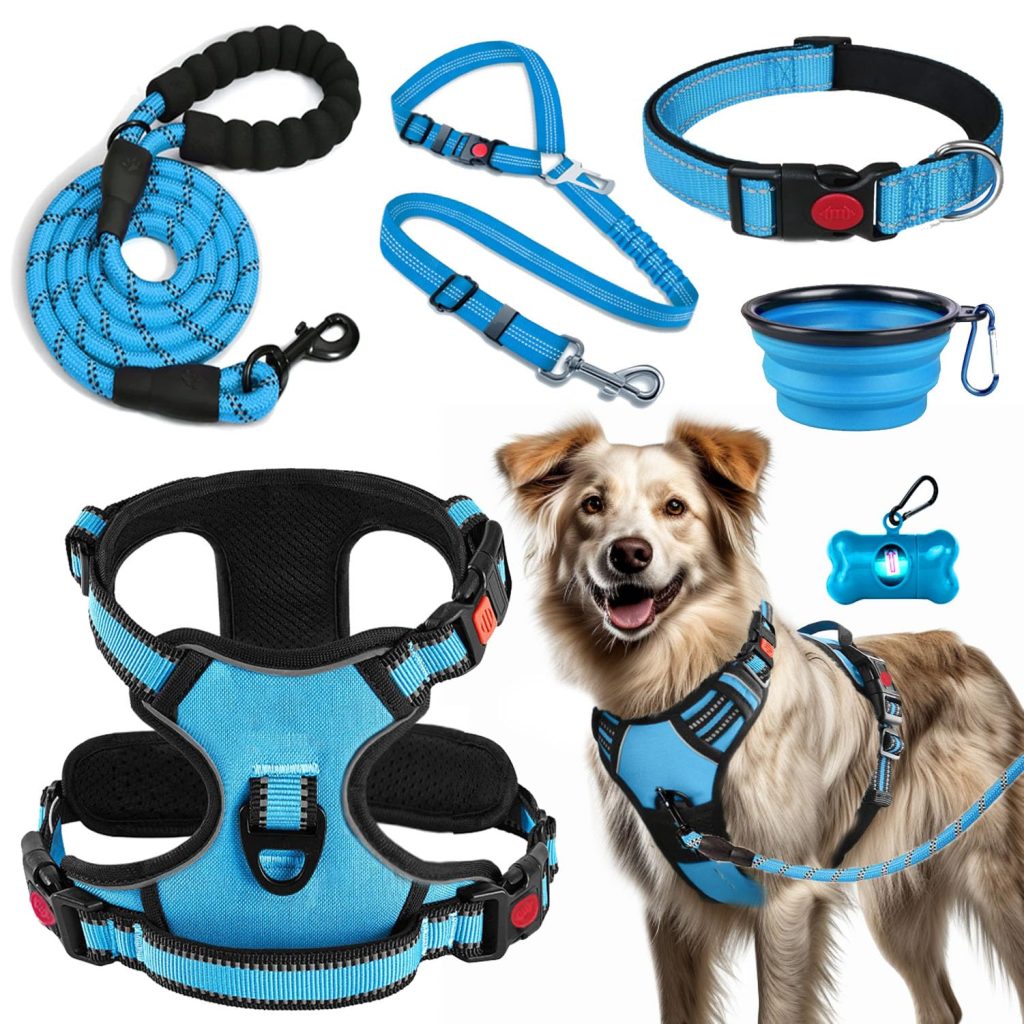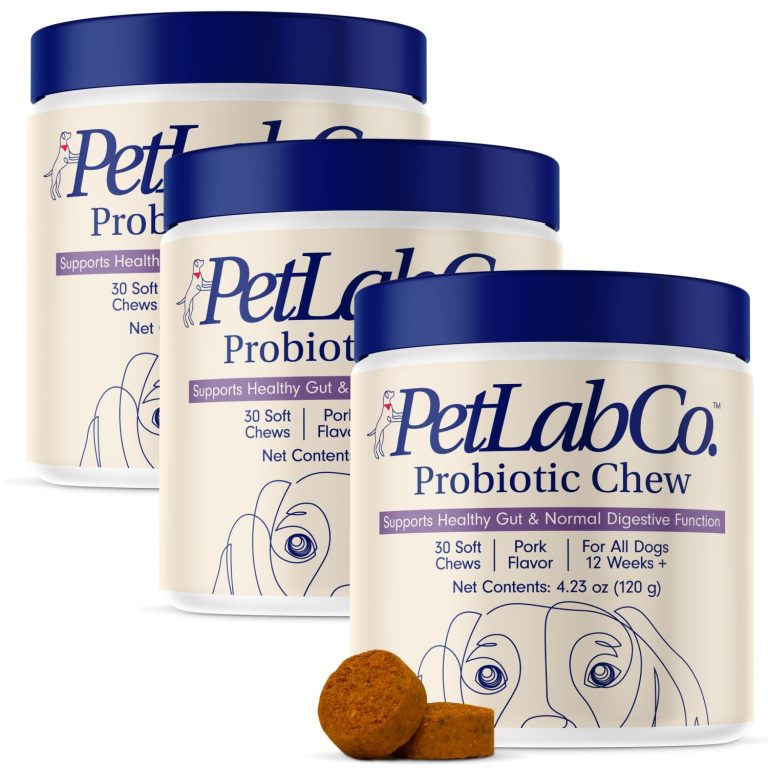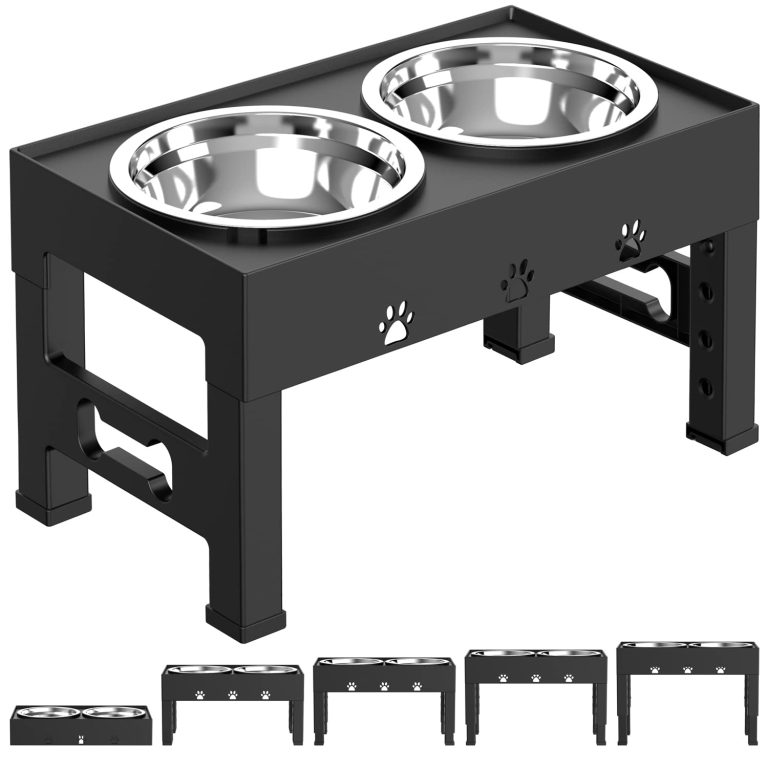Creating a Balanced Diet for Your Dog’s Optimal Health

To foster optimal health in your canine companion, it’s paramount to grasp the distinctive nutritional needs that dictate a balanced diet. Unlike humans, dogs possess different dietary requirements influenced by their life stage, breed, size, and activity level. For instance, while a sprightly puppy demands a diet rich in proteins and fats to support rapid growth and development, a senior dog may necessitate carefully adjusted portions with a focus on digestible fibers to maintain a healthy system.
Understanding these variations is important. Puppies thrive on higher energy content to fuel their exuberant play and growth spurts, while adult dogs benefit from balanced nutrition that sustains energy levels without leading to excessive weight gain. According to the American Kennel Club, maintaining an ideal weight is essential for minimizing the risk of obesity-related health issues such as diabetes and arthritis. Consequently, it’s vital to align their food intake with their activity levels.
In terms of exercise, dogs require regular physical activity tailored to their breed characteristics; for instance, working breeds like Border Collies revel in vigorous activities such as agility training or long runs, while less active breeds may find satisfaction in leisurely strolls. Aim for at least 30 minutes to 2 hours of exercise per day, depending on the dog’s age and breed, keeping in mind that leaping into rigorous activity without proper conditioning can lead to injuries.
Beyond exercise, common health issues often manifest as the years progress. For instance, hip dysplasia in larger breeds and dental disease—a prevalent phenomenon across all breeds—can drastically affect a dog’s quality of life. Maintaining good dental hygiene is essential; regular tooth brushing, combined with dental chews, can significantly mitigate plaque buildup that leads to gum disease. A study published in the Journal of Veterinary Dentistry corroborates this, illustrating that routine dental care can delay or prevent periodontal disease, a condition that afflicts an estimated 80% of dogs over the age of three.
The realm of canine health also considers its interplay with age-related changes, which are profound and can shape a dog’s nutritional requirements. Older dogs often experience a slowing metabolism, which makes it imperative to monitor their caloric intake closely alongside chlorine levels to prevent nutrient deficiencies. Integrating omega-3 fatty acids can foster cognitive function in senior dogs, thereby supporting not only physical wellness but also mental acuity.
Moreover, mental stimulation must not be overlooked in the quest for holistic canine welfare. Engaging your dog in puzzle toys, scent games, and basic obedience training can provide essential mental exercise that complements their physical activities. The dog training expert, Jean Donaldson, has noted how the stimulation of a dog’s mind is as significant as physical exertion, asserting that a well-rounded dog is not just one that exercises but one that engages in problem-solving and sensory activities as well.
Lastly, preventive care can further safeguard against common health challenges—regular veterinary check-ups, vaccination schedules, and parasite control measures are all crucial in identifying potential issues before they escalate. Emphasizing preventive health measures can not only enhance the longevity of a dog’s life but can significantly improve the quality of those years. Thus, a comprehensive approach that respects the complexities of canine nutritional needs, alongside a commitment to physical and mental well-being, paves the way toward a vibrant, healthy life for your beloved pet.
Essential Nutrients for Canine Health
Essential nutrients form the cornerstone of your dog’s overall health, significantly influencing their vitality, longevity, and happiness. Just as in humans, a well-rounded diet can profoundly affect various facets of your dog’s health, including energy levels, coat condition, and immune function. When considering the nutritional building blocks necessary for canine wellness, one must recognize the integral roles played by proteins, fats, carbohydrates, vitamins, and minerals.
Proteins are the building blocks of body tissue and are crucial for growth, maintenance, and repair. They comprise essential amino acids that dogs cannot synthesize themselves. High-quality protein sources, such as lean meats, fish, and eggs, stimulate muscle maintenance and immune function. A protein deficiency can lead to muscle wasting and compromised immune response, underscoring the need for a diet rich in adequate protein. Adult dogs typically require around 18-25% protein in their diet, while puppies may need upwards of 28% due to their growing bodies.
Fats, another essential category, offer a concentrated energy source, supporting cellular health and the absorption of fat-soluble vitamins (A, D, E, and K). Omega-3 and omega-6 fatty acids play distinct roles in fostering a shiny coat and reducing inflammation within the body. Fish oil and flaxseed oil are excellent supplements to think, especially for dogs prone to skin or joint issues. Healthy fats should comprise about 10-15% of your dog’s diet, allowing for energetic vitality and sustained health.
Carbohydrates, while sometimes misconstrued as optional, serve as a significant energy source and play a role in the digestive health of dogs. Whole grains, vegetables, and fruits provide essential fiber, which aids in maintaining gut health and regular bowel movements. Additionally, certain carbohydrates such as sweet potatoes and brown rice offer a slow-release form of energy that can help keep your dog active throughout the day. Unlike cats, dogs are omnivorous by nature and can thrive on a moderate level of carbohydrates, typically around 30% of their overall calorie intake.
The role of vitamins and minerals cannot be overstated; these micronutrients regulate numerous biochemical pathways that facilitate optimal health. Vitamins act as antioxidants, bolstering the immune system and protecting against cellular damage. For instance, vitamin E and beta-carotene contribute to skin and coat health, while B vitamins are essential for energy production and neurological functions. Minerals such as calcium and phosphorus are crucial for maintaining strong bones and dental health. However, it is vital to avoid over-supplementation, as excesses can lead to toxicity—they’re only beneficial when consumed at recommended levels.
Specific dietary considerations arise depending on breed predispositions and health conditions. For example, large breed puppies benefit from a diet formulated to control growth rates and reduce the risk of skeletal issues such as hip dysplasia. Dogs with food allergies or intolerances may find relief through specialized diets that eliminate common allergens like wheat, corn, and chicken. Consulting with a veterinarian to identify appropriate diet modifications can be indispensable for maintaining your dog’s health.
Maintaining a balanced diet rich in essential nutrients requires ongoing attention and adaptation to your dog’s changing needs. Monitoring weight and overall health regularly will help ensure that dietary adjustments can be made promptly. Being vigilant about observing changes in behavior, coat condition, or energy levels can provide crucial insights into when to seek veterinary guidance. Adopting a proactive and informed approach to canine nutrition can yield dividends not only in physical health but also in overall well-being.
Building a Balanced Meal Plan
Creating a balanced meal plan for your dog is a nuanced endeavor that requires an understanding of both nutritional foundations and the specific needs of your canine companion. A well-structured meal plan does not simply consist of feeding—rather, it embraces a holistic view of health, matching food choices with the lifestyle, age, and medical history of your pet.
Begin by considering portion sizes, taking into account the caloric needs of your dog. The common practice of feeding according to the manufacturer’s guidelines on the dog food packaging can serve as a baseline, but personalization is key. Factors such as breed, size, age, activity levels, and overall health should guide you in fine-tuning the amounts. For instance, a highly active dog will require more calories than a sedentary counterpart. Measuring daily rations and dividing them into two or three meals can help in preventing excessive hunger or energy spikes followed by crashes, maintaining steadiness in energy levels throughout the day.
Next, ponder the types of proteins you incorporate into your dog’s meals. While kibble or dry food is often convenient for busy pet owners, exploring options like fresh meats, fish, or even homemade meals can add variety and excitement to your dog’s diet. When opting for fresh foods, ponder the necessary cooking methods; for instance, ensure that meats are properly cooked and free of seasonings that could be harmful to dogs, such as onions or garlic. Including diverse protein sources will not only cater to your dog’s palate but also enhance their nutrient intake, preventing deficiencies that could lead to health problems down the line.
A vital component of any balanced meal plan is incorporating fiber-rich ingredients, which support digestion and promote healthy gut flora. Whole grains like brown rice, quinoa, or oats provide essential fiber along with vitamins and minerals. Additionally, including vegetables like carrots, green beans, and sweet potatoes can enhance both the dietary fiber and nutrient profiles without adding excess calories. Certain vegetables also serve to satiate your dog, contributing to a feeling of fullness without the risks associated with overfeeding.
Supplements can further help bridge gaps in the diet, particularly for dogs with special dietary needs or sensitivities. Ingredients like omega-3 fatty acids, glucosamine, or probiotics can bolster joint health, improve skin and coat conditions, and enhance gut health, respectively. Consulting with your veterinarian before adding any supplement is important to ensure it aligns with your dog’s specific health needs, and to avoid potential interactions with other medications or dietary elements.
Monitoring your dog’s weight and overall condition is equally important in the pursuit of a balanced meal plan. Regular check-ups with a veterinarian not only provide opportunities to reassess dietary needs but can also detect changes in health that may necessitate a shift in feeding strategy. Keep an eye out for subtle changes in your dog’s energy levels, coat quality, and stool consistency as indicators of their health status. A sudden change may suggest dietary inadequacies or even more serious health issues that warrant immediate attention.
Another often-overlooked aspect is the emotional experience of mealtime. Dogs are inherently social eaters, and the mealtime environment can greatly influence their willingness to engage with food. Creating a calm space free from distractions can enhance their dining experience, as can incorporating interactive feeding methods, such as puzzle feeders or slow feeders, which serve to educate their instincts and mental faculties while they dine.
Successful meal planning for dogs hinges on the interplay between nutritional science and the analytical observance of individual needs. An adept caregiver adapts to the shifting sands of canine life—from playful puppyhood to tranquil senior years, ensuring that each dish served is one that nourishes both body and soul. Balancing the art of feeding with a keen eye towards adjustments and improvements fosters a relationship that thrives on mutual health and happiness.
Common Dietary Considerations
The significance of considering dietary factors extends beyond mere macronutrient balance; it encompasses an acute awareness of the intricate relationship between nutrition, health issues, and the overall well-being of our beloved canine companions. Certain breeds may be predisposed to specific health conditions, necessitating individualized dietary strategies that align with their genetic tendencies. For instance, breeds like Dachshunds and Shih Tzus are notoriously prone to obesity, necessitating vigilant calorie management and fiber-rich diets that promote satiety without excess weight gain.
In addition, the landscape of canine health often introduces challenges such as food allergies or sensitivities, which can manifest as skin irritations, gastrointestinal upset, or other systemic issues. Identifying and addressing these sensitivities requires a systematic approach. One effective method is the elimination diet—this entails removing all potential allergens from the diet and gradually reintroducing them to pinpoint the source of the reaction. Common culprits often include grains, beef, chicken, and dairy. Consulting with a veterinarian is paramount during this process, not only to implement an appropriate diet but also to monitor your dog for any evolving symptoms throughout this phase.
With the rise of grain-free diets, it is essential to recognize the importance of a balanced approach. While eliminating grains may be beneficial for certain dogs, it’s imperative to ensure that they do not end up missing essential nutrients or fiber that promote optimal digestive health. Furthermore, a growing body of research has linked certain grain-free formulations to canine dilated cardiomyopathy (DCM), underscoring the necessity of thorough veterinary guidance when considering significant dietary changes.
Nevertheless, the realm of canine nutrition should not solely revolve around restricted or specialized diets. Incorporating highly digestible ingredients can significantly mitigate gastrointestinal disturbances. For example, novel protein sources such as bison or venison provide alternative options for dogs that may not tolerate more traditional proteins well. Additionally, incorporating probiotics into your dog’s regimen can enhance gut flora, encouraging a healthy digestive system while providing vital support to the immune system.
Moreover, the method of food preparation can impact the nutritional value and digestibility of the meals you serve. Cooking meats lightly or incorporating foods that are steamed rather than boiled preserves more nutrients, enhancing the food’s overall nutritional profile. For those considering a homemade diet, it’s critical to ensure that the meals are well-rounded and balanced, potentially engaging the expertise of a veterinary nutritionist to navigate this intricate path successfully.
Maintaining dental health is another integral facet of canine care that is often underestimated when considering overall health. Dental disease, as previously discussed, is pervasive and is directly curbed through thoughtful dietary choices. Hard kibble may serve to mechanically remove plaque; however, integrating dental chews specifically designed to aid in oral hygiene can be a proactive approach. Additionally, establishing a regular dental cleaning routine, ideally starting from a young age, introduces the concept of oral care to your dog, making them more amenable to brushing and other forms of maintenance as they mature.
Age-related health changes present an ongoing need to adapt dietary strategies. Senior dogs generally benefit from diets that focus on joint health—ingredients such as glucosamine and chondroitin can notably improve mobility and comfort. Consideration should also be given to digestive enzymes, which support improved food breakdown and nutrient absorption—a helpful aid as the metabolism slows with age. Formulating a diet that caters to these shifts can significantly enhance your dog’s quality of life.
In parallel to physical health, the psychological aspect of a dog’s well-being must be addressed through consistent mental and emotional stimulation. Engaging with your dog in puzzle toys, scent work, or new tricks not only prevents boredom but can enhance cognitive function and reduce anxiety. An enriched environment with various stimuli can cultivate a well-rounded and emotionally healthy dog, paralleling our understanding of their physical health. As Jean Donaldson aptly remarked, “a tired dog is a happy dog.” Thus, encouraging physical activity through play and mental engagement forms a well-rounded health regimen.
A comprehensive approach to canine diet must incorporate an awareness of health issues, dietary adjustments tailored to individual needs, and a commitment to preventive care practices. A vigilant eye on your dog’s evolving needs, combined with the initiatives you take to cater to their dietary requirements, will pave the way toward fulfilling the promise of a long and harmonious companionship.
Tips for Maintaining a Healthy Diet
To cultivate a healthy and lasting bond with your canine companion, it is essential not only to provide a meticulously balanced diet but also to adopt an array of holistic health maintenance practices that cater to their physical and mental well-being. The degree of exercise a dog requires is intrinsically tied to its health; most breeds thrive on a regimen of daily physical activity, the duration and intensity of which will vary according to age, breed, and energy levels. For instance, working breeds such as the German Shepherd or Labrador Retriever will flourish with rigorous exercise, while more sedentary breeds may require less energetic pursuits. The rule of thumb is to aim for at least 30 minutes to 2 hours of exercise daily, integrating a mixture of brisk walks, invigorating runs, and stimulating play sessions to maintain an agile, fit body. Inadequate exercise can lead to a plethora of health issues, including depression, obesity, and destructive behavior—conversely, over-exercising, particularly in unconditioned dogs, can lead to injuries, underscoring the necessity for a tailored approach to exercise.
Common health issues warrant attention, as they often resonate deeply with dietary choices and lifestyle. Canine obesity has reached alarming levels, paradoxically affecting dogs of all sizes; a well-structured diet and regular exercise plan can mitigate risk factors significantly. Furthermore, conditions like hip dysplasia and degenerative joint disease, predominantly seen in large breeds, can benefit from nutritional strategies that include joint-supporting supplements and a focus on maintaining a healthy weight. Regular veterinary consultations are paramount, providing opportunities to discern early signs of health complications and implement preventive measures before they escalate. Furthermore, addressing the dietary needs of your pet proactively can translate into substantial long-term health benefits.
Dental health cannot be overstated in its influence on overall well-being. Periodontal disease is alarmingly prevalent, impacting approximately 80% of dogs by the age of three. Regular dental hygiene practices—including consistent tooth brushing and the provision of dental chews specifically engineered to imropve oral health—can curtail the prevalence of plaque buildup and promote healthy gums. In addition to these measures, incorporating dental examinations during routine veterinary visits is critical; your veterinarian can provide insights on any emerging dental issues that may require attention, thus integrating dental care as an essential component of your dog’s health strategy.
As dogs progress through various life stages, age-related health changes emerge that demand keen observations from caregivers. Senior dogs, in particular, may experience a natural decline in metabolism, necessitating dietary adjustments that prioritize digestible nutrients, lower caloric content, and joint health support. Integrating specialized senior dog formulations that include omega-3 fatty acids, which promote cognitive function, alongside the monitoring of physical activity levels, can dramatically enhance their quality of life. Increased susceptibility to illness due to a waning immune system often requires a heightened focus on preventative care—ensuring vaccinations and parasite control measures are up to date can be the difference between a healthy senior dog and one plagued by recurrent health issues.
Equally vital is the mental aspect of a dog’s health. Mental stimulation is not merely an afterthought; it’s an integral facet of a well-rounded regimen. Enriching a dog’s environment through the use of puzzle toys, engaging training exercises, and interactive play not only sharpens cognitive skills but also significantly reduces anxiety and behavioral problems. Engaging with your dog in training sessions, using clicker training techniques, or teaching new tricks can foster a deeper bond, encouraging a positive feedback loop where both dog and owner find joy and fulfillment in the process. Not only does this enrich your interactions, but it also aligns well with behavioral expert Jean Donaldson’s assertion that mental stimulation serves as a vital counterpart to physical exercise; a dog engaged and challenged mentally is likely to exhibit fewer behavioral problems and reduced stress levels.
Incorporating preventive care into your dog’s health regimen—through practices such as regular veterinary checkups, timely vaccinations, and proactive discussions about diet and exercise—will shield your canine from common health catastrophes. Such initiatives enhance the dog’s lifespan while improving the quality of those years, reinforcing the philosophy that attentive and educated pet care is essential for a jubilant existence. This comprehensive approach, which honors the complexities of dietary needs alongside physical exercise and mental stimulation, will culminate in a thriving canine companion, radiating health and vitality as a testament to the love and commitment bestowed upon them by their dedicated caretaker.







